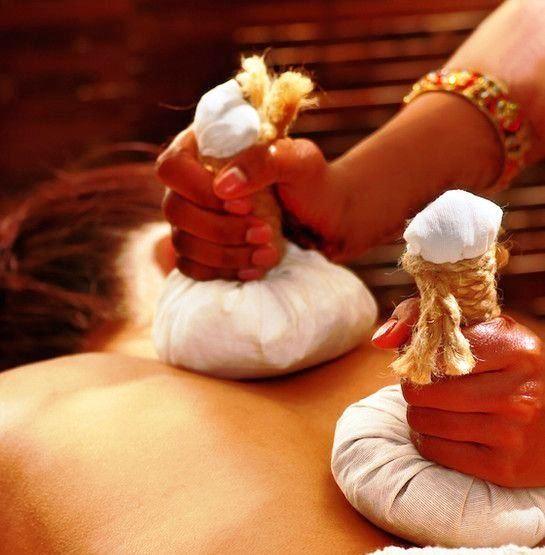Podikizhi and Navarakizhi are two traditional Ayurvedic therapies aimed at promoting rejuvenation, relieving pain, and improving overall health and well-being. While both therapies involve the application of herbal powders or rice in the form of boluses, they have different techniques and purposes.
- Podikizhi: In Podikizhi, herbal powders or herbal pastes are bundled into muslin bags and heated in medicated oils. These warm herbal bags are then gently massaged over the body or specific areas experiencing pain or inflammation. The heat from the herbal bags helps to open up the pores, improve blood circulation, and relieve muscle stiffness and joint pain. Podikizhi is particularly beneficial for conditions like arthritis, back pain, muscle spasms, and sports injuries.
- Navarakizhi: Navarakizhi involves the preparation of small boluses made from a special type of rice called Navara rice, cooked in a mixture of milk and herbal decoctions. These rice boluses are then dipped in warm medicated oils and applied to the body in a synchronized massage. The heat and nourishing properties of the rice and oils help to deeply moisturize the skin, improve muscle tone, and promote relaxation. Navarakizhi is often used as a rejuvenating therapy, especially in cases of muscle weakness, fatigue, and neurological disorders.
Both Podikizhi and Navarakizhi are highly therapeutic and are commonly offered as part of Ayurvedic treatment programs aimed at restoring balance to the body and mind. However, the choice between the two therapies may depend on individual health needs and preferences, and it’s essential to consult with a qualified Ayurvedic practitioner to determine the most suitable treatment approach.

